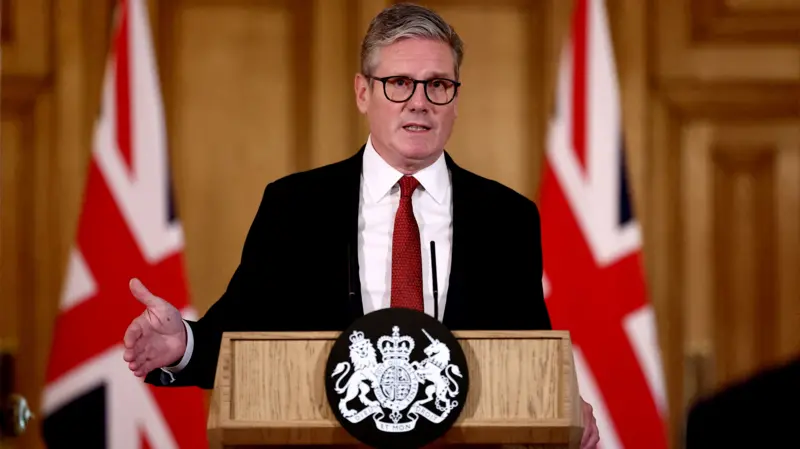By BBC
The prime minister’s due to hold an emergency response meeting later – called a Cobra meeting – following a weekend of unrest in parts of the UK.
Police responded to violent scenes in Rotherham, Middlesbrough and Bolton on Sunday alone – with more than 150 people known to have been arrested.
In a televised address yesterday, Keir Starmer said “people in this country have a right to be safe, and yet we’ve seen Muslim communities targeted, attacks on mosques”.
It all follows a stabbing attack in Southport last week, which left three children (aged six, seven and nine) dead. Five others were injured, along with two adults. False claims followed that the suspect – a 17-year-old born in Cardiff to Rwandan partners – was a refugee who arrived in the UK by boat in 2023 and unfounded speculation he was Muslim.
The boy, Axel Muganwa Rudakubana, has been charged with three counts of murder, 10 of attempted murder and one count of possessing a bladed article and is remanded in youth custody.






